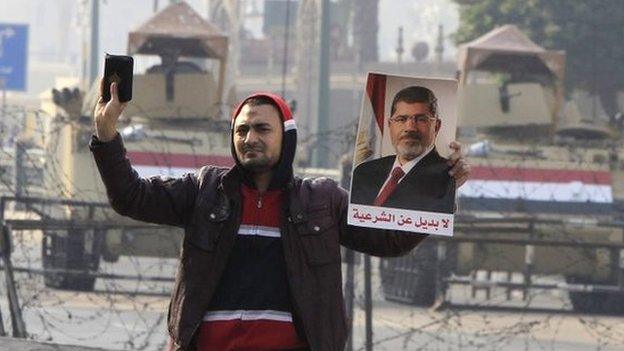Qatar crisis: Can Al Jazeera survive?
- Published
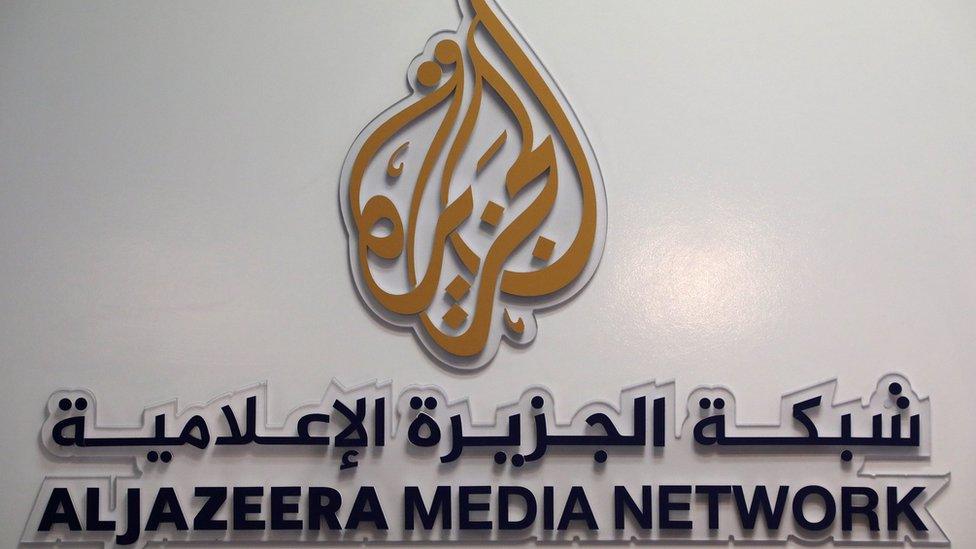
Al Jazeera launched in 1996, and soon attracted large audiences for its dynamic coverage of the Arab world
Qatar's Al Jazeera media network has undoubtedly put the tiny Gulf state on the international map.
It is the showpiece of the oil- and gas-rich nation's efforts to turn its financial largesse into outsized global influence and visibility, a two-decades long effort that includes its successful bid to host the 2022 World Cup.
But there are growing fears that the current diplomatic crisis in Qatar could place the high-profile network's future in jeopardy.
Al Jazeera's broadcasting has caused controversy and drawn anger in various Arab states, not least in Egypt after the fall of Hosni Mubarak during the Arab Spring and the subsequent ousting of the elected president, Mohammed Morsi - a leader of the Muslim Brotherhood.
It has already been caught up in the current crisis, with its website blocked by Saudi Arabia, the United Arab Emirates (UAE), Egypt and Bahrain in late May.
Those nations all severed ties with Qatar on 5 June, accusing the country of supporting extremism. Saudi Arabia has closed Al Jazeera's offices and withdrawn its broadcast licence, saying it promotes terrorist "plots", supports Houthi militias that Saudi Arabia is fighting in Yemen, and has attempted to "break the Saudi internal ranks".
Al Jazeera says it is "not partisan to any ideology, group or government".
Qatar crisis: What's it about?
Qatar travel: What does it mean for me?
Qatar now finds itself isolated and vulnerable. It denies backing terrorist groups but will be pressed for concessions in order to resolve the tense situation, which left its international airport, a key hub, virtually deserted, and residents stocking up on food supplies.
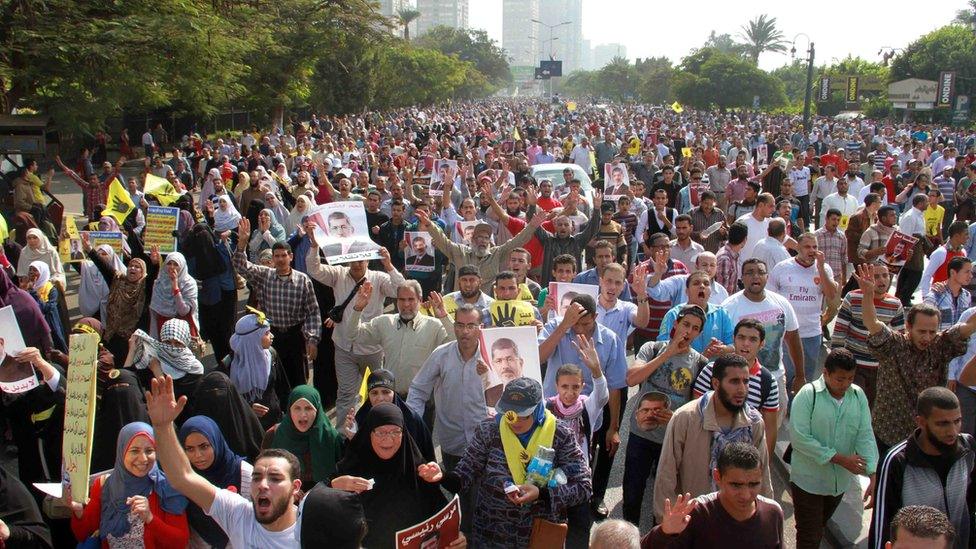
Al Jazeera has been accused by Egypt of being biased towards supporters of deposed Islamist President Mohammed Morsi
BBC Arabic's Feras Kilani, in Doha, says sources tell him that media reforms will be a key condition placed on Qatar. Al Jazeera might not be closed but its editorial policies will have to change, he says, while the newer Qatari Al-Araby TV network, based in London, could be shuttered.
"For many years Al Jazeera has been a bone of contention for the Gulf states and Egypt, even before its heyday of rolling news coverage during the Arab Spring," writes the Emirati commentator Sultan Sooud al-Qassemi.
He points out that in 2002, Saudi Arabia was angered over coverage of its peace plan for the Israel-Palestinian conflict and recalled its ambassador from Qatar as a result. An ambassador was only sent back in 2008.
In 2014, Qatar promised to stop "interfering" in its Gulf neighbours' domestic politics to resolve another diplomatic spat that saw Saudi Arabia, the UAE and Bahrain withdraw their ambassadors
This time around, Qatar's neighbours in the Gulf "will demand the complete shuttering of the Al-Jazeera TV network before any mediation can take place", Mr Qassemi predicts., external
That would have major consequences for the country's media ambitions, and for the network's 3,000-plus staff in Doha and around the world.
Muslim Brotherhood: From rapid rise to sharp decline
Should Trump take a bow for Qatar row?
Qatar's "current crisis represents a new challenge and new circumstances" for Al Jazeera, said Giles Trendle, the acting managing director of Al Jazeera English.
"But Al Jazeera remains committed to continue its pioneering and courageous journalism around the world in a professional, balanced and objective manner."
He added that "only those who want to see one side of the story told" would consider the network biased towards the Muslim Brotherhood or any other group.


The rise of Al Jazeera
Arabic-language news channel launched in 1996, with Qatar's emir pledging to let journalists "report the news as they see it"
Attracted large audiences - soon in the tens of millions - with dynamic coverage and criticism of Arab leaders
Came to global prominence by airing video messages from Osama Bin Laden after 9/11
Set up English-language channel in 2006, which has won many awards and broadcasts to more than 100 countries
"If you follow coverage on both channels, you wouldn't believe this is the same brand," says Arab media expert Noha Mellor
Spent huge sums to launch Al Jazeera America in 2013 to break into US market but the channel folded in 2016
Reported to have lost large audiences in Egypt after coverage of the Arab Spring. Al Jazeera Arabic and its local channel Mubasher Misr (later suspended) was accused of serving as mouthpiece of Muslim Brotherhood supporters, which it denied

Qatar finds itself in a delicate position, says H A Hellyer, a senior non-resident fellow at the Atlantic Council.
It is perceived as a "loose cannon" over coverage of the Muslim Brotherhood, he says, and its relationship with Saudi Arabia's chief rival for regional influence, Iran.
US President Donald Trump, a key ally, has meanwhile praised Qatar's isolation.
The country has little wiggle room, and any deal to bring Qatar's foreign policy closer in line with Saudi Arabia's will probably involve changes to its influential media networks - including Al Jazeera - and possibly the end of Al-Araby Al Jadeed (The New Arab), an outlet part of the same company as Al-Araby, Mr Hellyer writes, external.
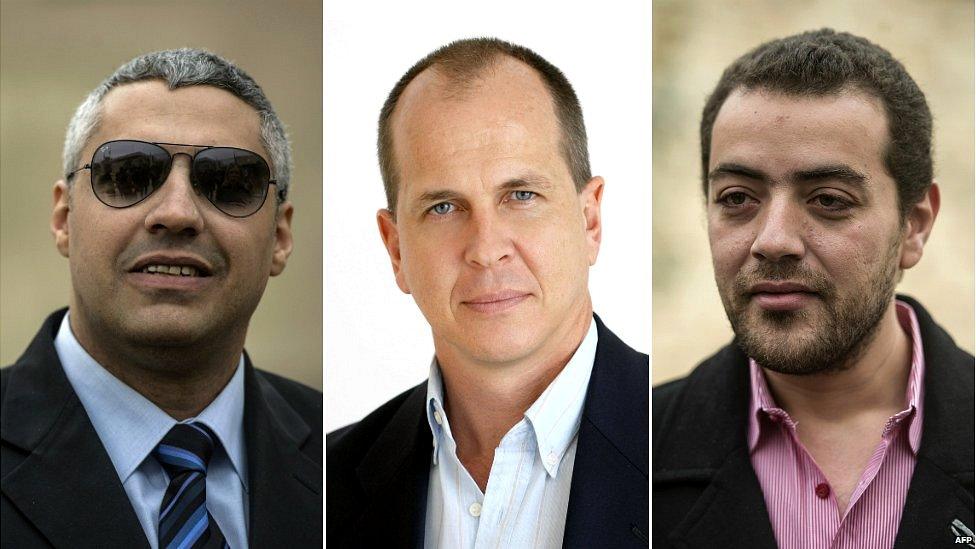
Three Al Jazeera journalists were convicted in Egypt of "spreading false news" in 2015, in a case that drew global condemnation
David Roberts, a Qatar expert at King's College London, agrees that Al Jazeera will probably be on the Gulf countries and Egypt's "shopping list" of concessions they want from Qatar.
"But this is a negotiation and there is no certainty that Qatar would capitulate on this point," he told the BBC.
He says that Al Jazeera Arabic, although it has toned down its coverage, "is still prickly towards Egypt in particular".
But the channel did stop "going after" Saudi Arabia close to a decade ago - around the time the ambassador was returned.
'Change of tone'
It has been reported that in late 2007, Qatar's government assured Saudi Arabia that its coverage of the kingdom would be mellowed as it moved to reset relations as Iran's nuclear ambitions grew.
"Orders were given not to tackle any Saudi issue without referring to the higher management," a newsroom employee told the New York Times, external. "All dissident voices disappeared from our screens."
Others aren't convinced that the end of Al Jazeera will be a specific demand made of Qatar, but agree its foreign policy will undoubtedly have to change if it wants to bring an end to its current isolation.
This means changes to the tone and coverage of government-funded media networks like Al Jazeera would follow, says Professor Noha Mellor, a pan-Arab media expert at the University of Bedfordshire.
"They might just tone down their media discourse in line with their foreign policy, because [Qatar's] foreign policy will have to tone down, in style and ambition."

Al Jazeera Arabic: How does it cover events? - by Nada Rashwan, BBC Monitoring
Al Jazeera's Arabic channel was strongly supportive of the 2011 Arab uprisings and it has veered towards an overtly pro-Islamist line amid the upheavals that have engulfed the region since.
With that shift, the channel has come to be perceived as a pillar of Qatar's foreign policy and a reflection of its ambitions in a changing Arab world.
Al Jazeera was at the forefront of tensions that strained relations between Egypt and Qatar after the toppling of Mohammed Morsi in 2013.
In Syria and Iraq, Al Jazeera's coverage of the so-called Islamic State (IS) militant group has differed from other outlets.
In referring to the group, Al Jazeera uses the expression "the state organisation", which is not very far removed from what IS calls itself, as opposed to the pejorative Arabic acronym "Daesh" used by Saudi media, including Al Jazeera competitor Al-Arabiya.
In 2015, Al Jazeera used the positive term "Sunni revolutionaries" to refer to Sunni fighters, including IS militants, who took control of Iraq's key city of Mosul.

- Published29 August 2015
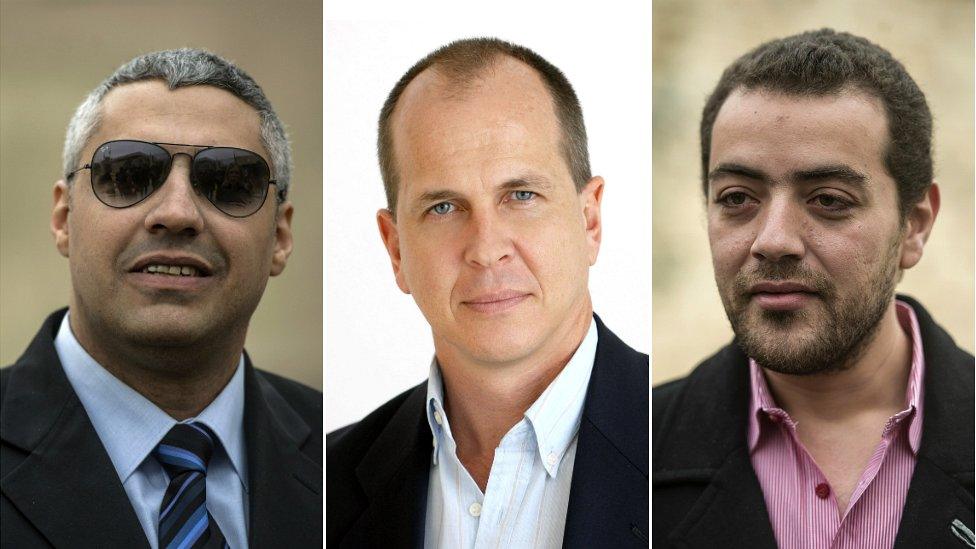
- Published27 March 2016
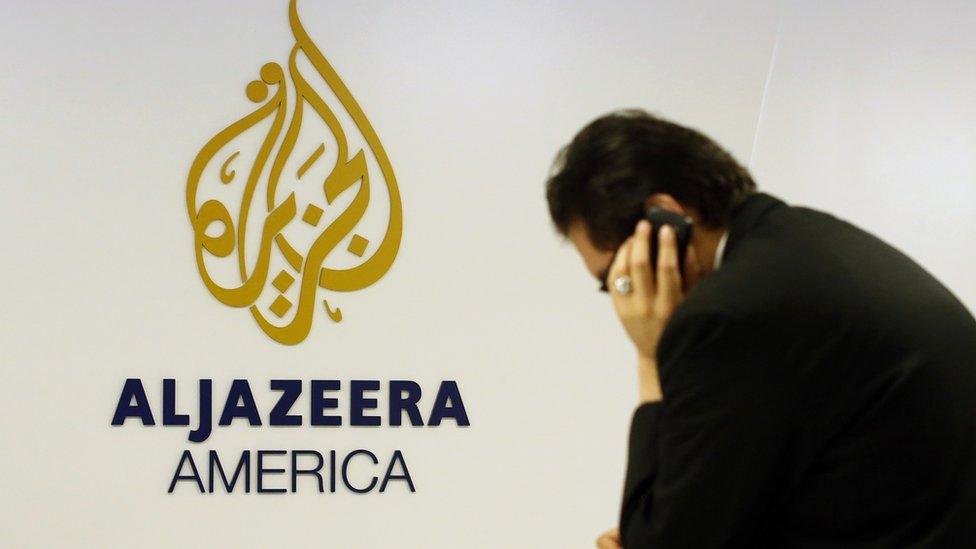
- Published13 January 2016

- Published6 June 2017
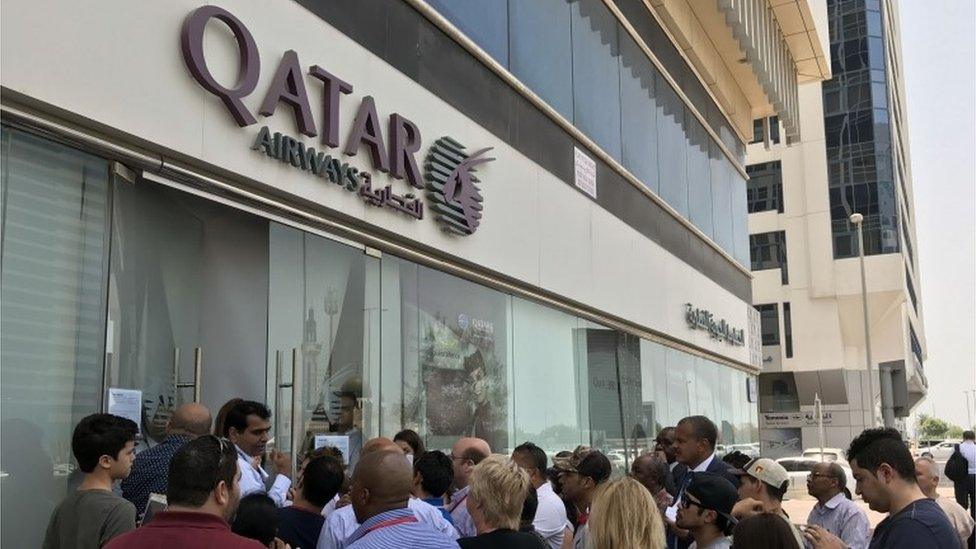
- Published6 June 2017
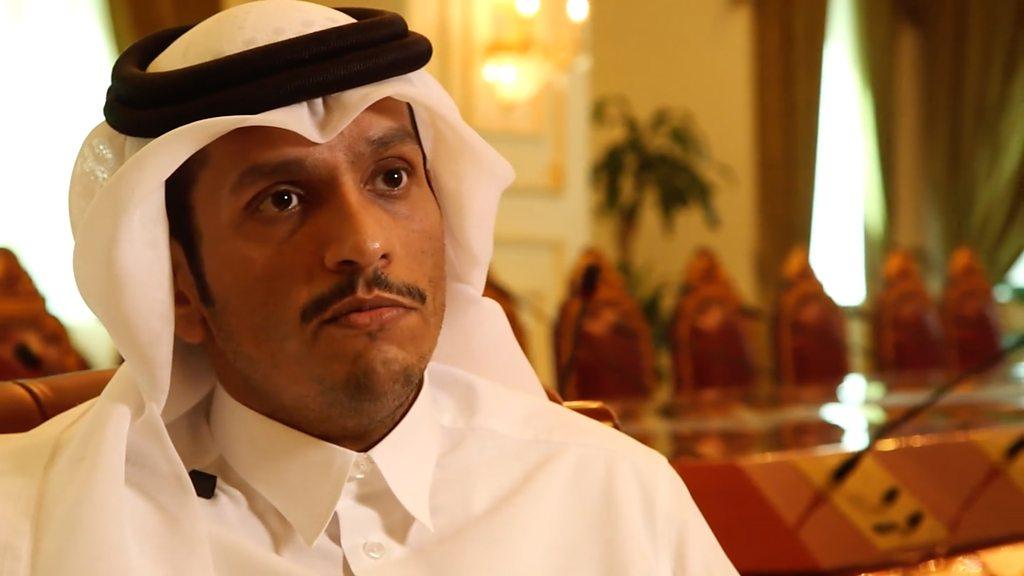
- Published19 July 2017
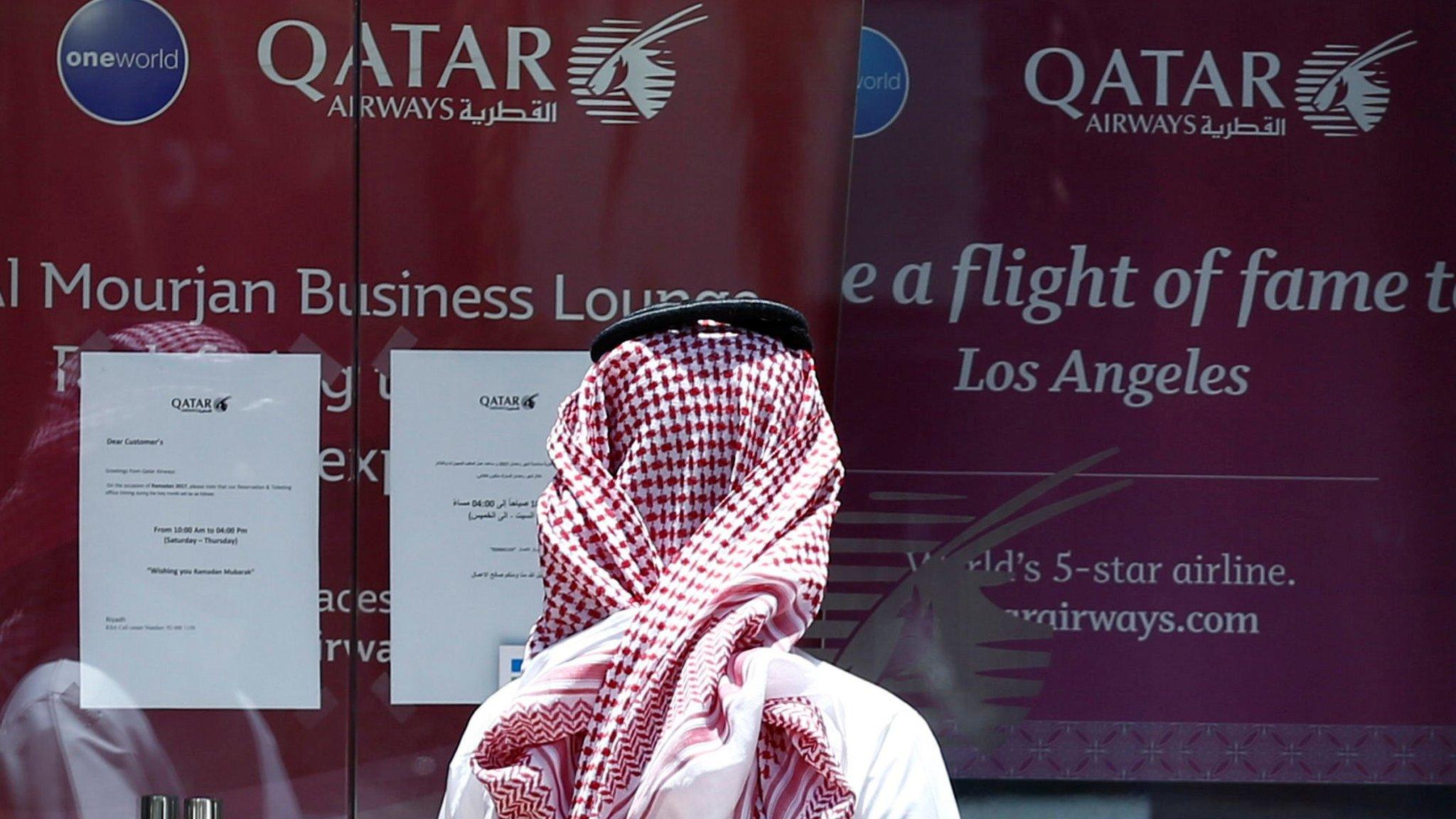
- Published6 June 2017
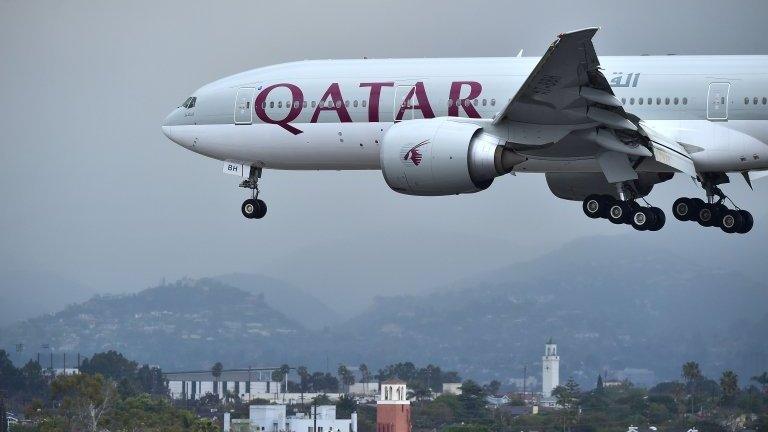
- Published5 June 2017
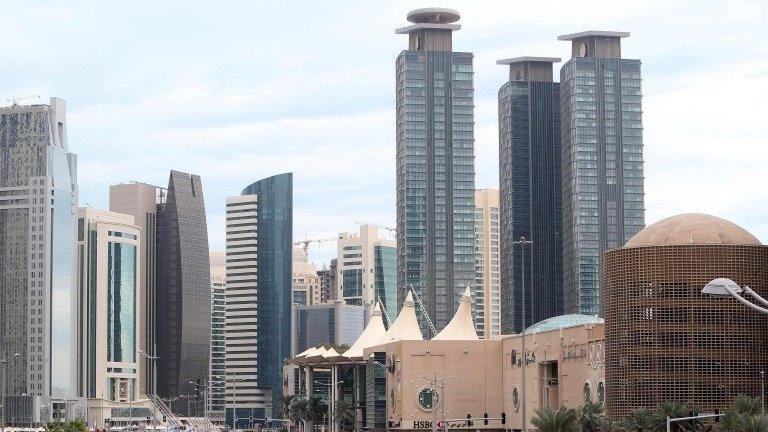
- Published6 June 2017
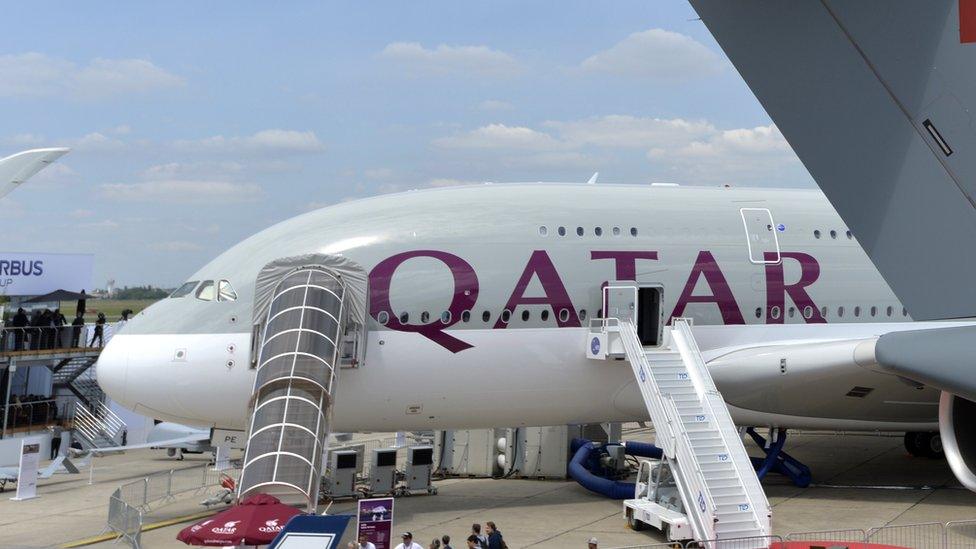
- Published5 June 2017
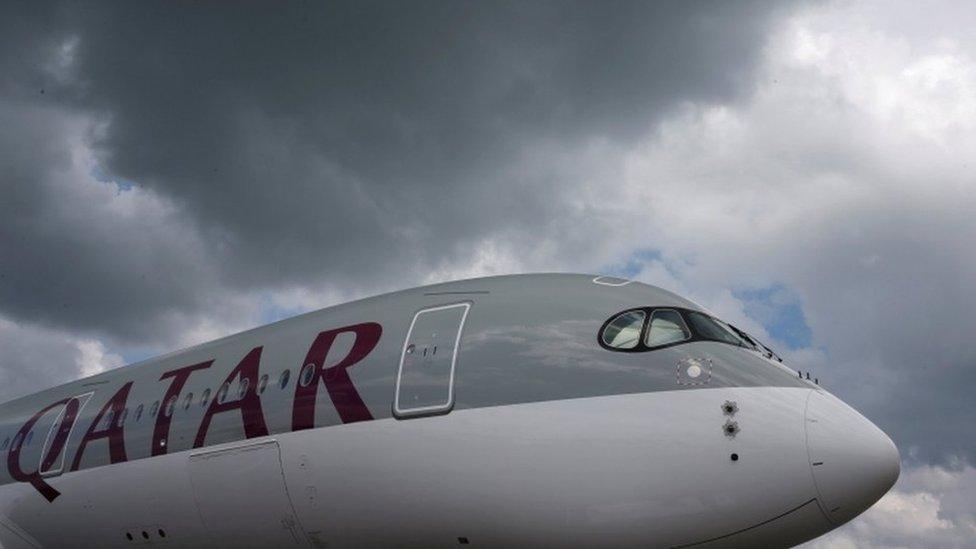
- Published5 June 2017
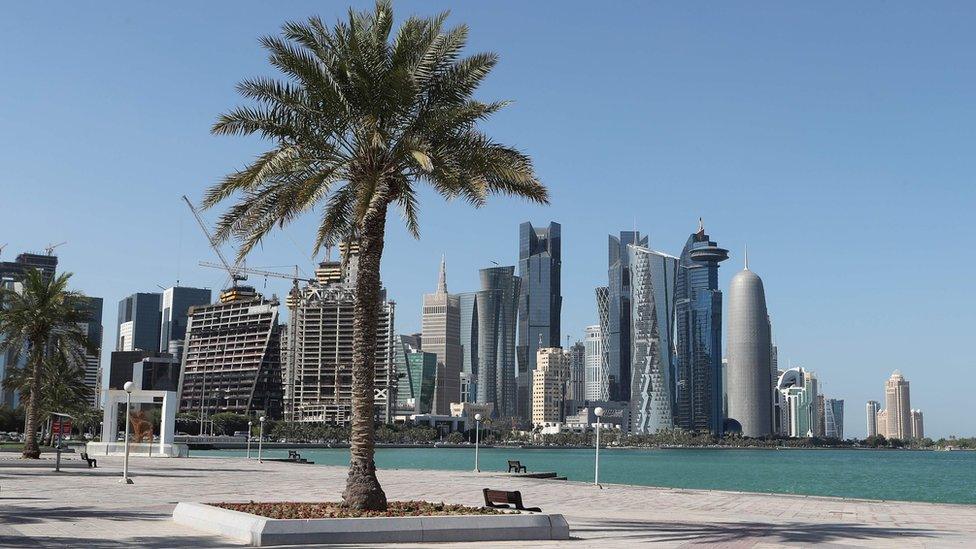
- Published5 June 2017

- Published5 June 2017

- Published25 May 2017
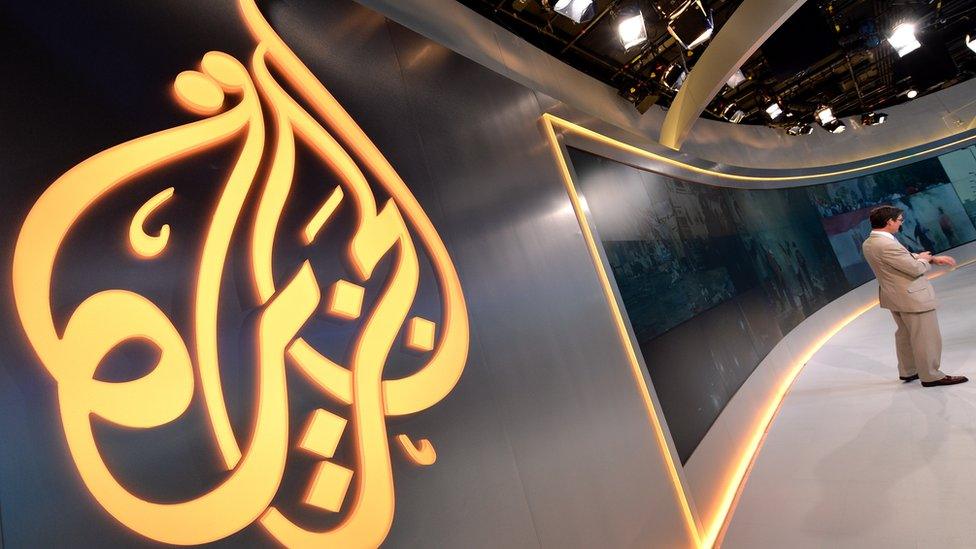
- Published7 September 2023
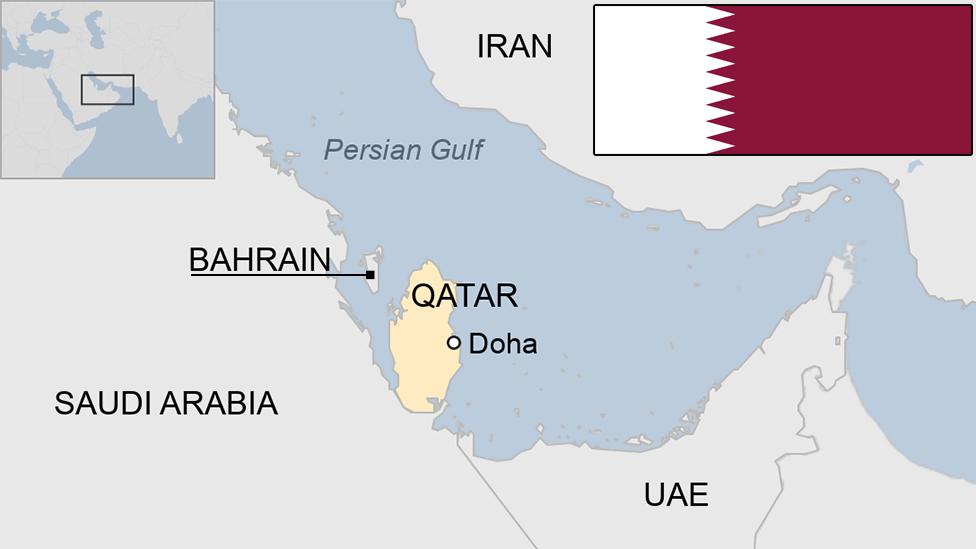
- Published3 December 2015
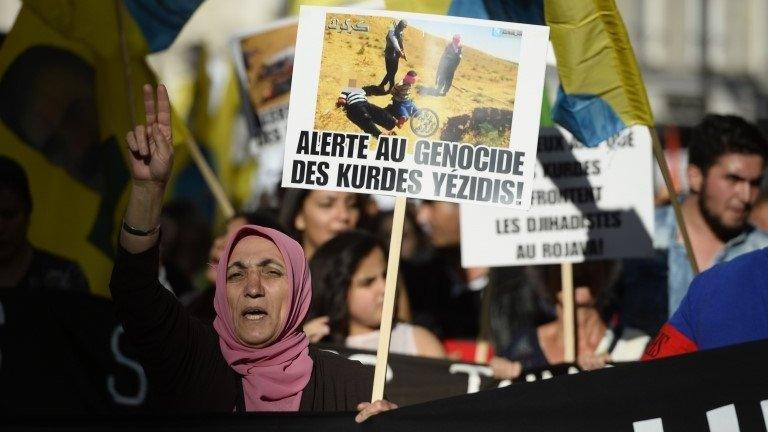
- Published5 June 2017
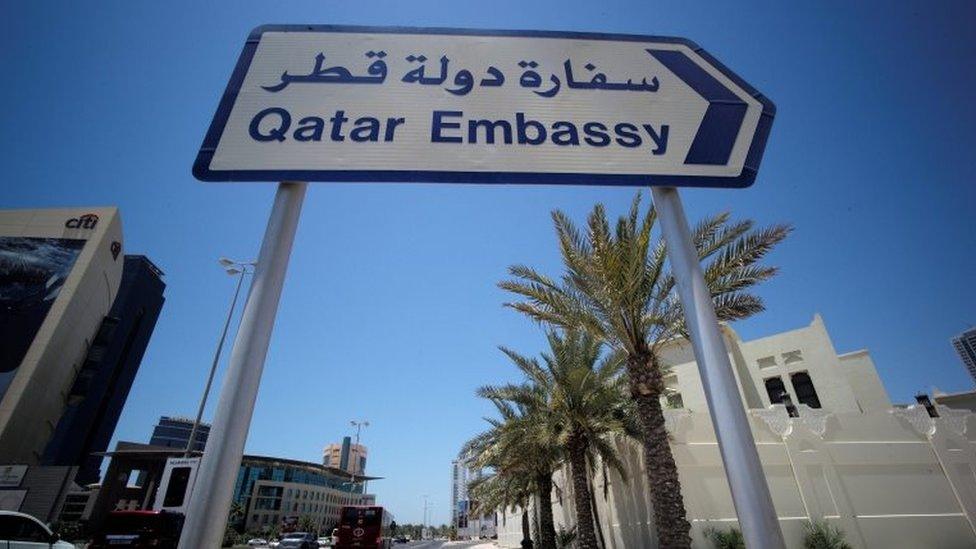
- Published13 April 2015
